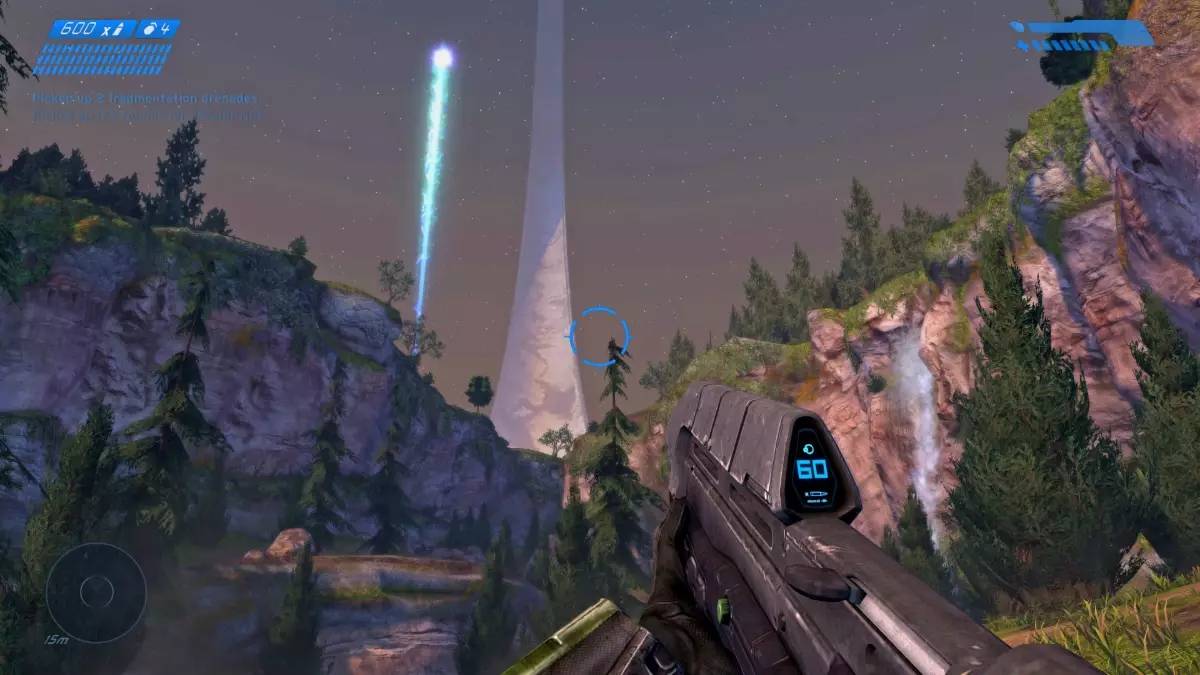In a rather audacious move, Microsoft has sparked a whirlwind of excitement with its hints about a remaster of Halo: Combat Evolved, an iconic title that molded the gaming landscape. Phil Spencer, the gaming division’s CEO, subtly stoked the fires of nostalgia during the recent Xbox Games Showcase. While the details were scant, the implications were vast—this announcement signifies not just the return of a classic, but perhaps, the resurgence of a franchise that many believe relies too heavily on its storied past. A remaster in 2024, coinciding with Xbox’s 25th anniversary, can be seen as a double-edged sword. It offers gamers the chance to experience a beloved title on modern platforms, but it also raises a pressing question: is this reliance on nostalgia detracting from innovation in gaming?
The Shadow of the Halo Titan
Halo: Combat Evolved made its grand entrance back in 2001 and instantly became a landmark in first-person shooters. It wasn’t merely a game; it was the manifestation of a new era for console gaming. The original Xbox found its footing largely due to this singular title, which reshaped multiplayer gaming and story-driven experiences. As we look ahead to the potential remaster, there’s an undeniable sense of mixed emotions—while it may reignite the fascination of long-time fans and entice a new generation, it also represents a risk of stagnation within a franchise that has previously set the standard for what video games could become.
Previously remastered in 2011 for its 10th anniversary, the prospect of another iteration raises eyebrows. Some might argue that continual remasters are symptomatic of a broader issue in the industry, where developers occasionally lean on established titles rather than forge ahead with innovative ideas. Is Microsoft catering too much to nostalgia at the expense of risking fresh narratives? One can’t overlook how the tides have shifted; many younger gamers might not hold Halo in the same reverence as their older counterparts. This generational gap poses a unique challenge—how do you balance preserving a legacy while inviting new voices into the mix?
New Horizons with Unreal Engine 5
In the realm of technical advancements, one must marvel at the capabilities of Unreal Engine 5. This powerhouse engine is heralded for its potential to breathe new life into classic games, providing a visually stunning background to rejuvenate stale stories. As 343 Industries transitions to Halo Studios, the emphasis is explicitly placed on harnessing cutting-edge technology to create an experience that feels modern yet familiar. However, juxtaposing this newfound vitality with the narrative weight of existing lore presents challenges that could easily falter if navigated poorly.
Furthermore, the prospect of cross-platform availability, with the remaster possibly making its way to rival consoles like the PS5 and Nintendo Switch 2, signifies a strategic pivot. Microsoft’s openness to sharing its franchise with competitors signals a shift that could redefine how gaming ecosystems interact. This merger of accessibility might attract a broader audience to the Halo franchise, but it runs the risk of blurring the lines of exclusivity and potentially diluting the identity that Halo has cultivated over decades.
Reflections on a Stagnant Future
The remaster concept, at its core, sparks debate: is this a mere celebration of the past, or is it an exercise in creative bankruptcy? One cannot ignore that Halo, despite its glorious history, shows signs of running on fumes. With the most recent title, Halo Infinite, having experienced its share of developmental hiccups and a fluctuating player base, there is a palpable fear that the franchise could crumble under the weight of its own history.
Spencer’s reference to introducing a new generation to Halo presents an audacious hope—a wish that in revisiting this classic, the team can ignite an old flame while refraining from exploiting a formula that, while effective, might be losing its luster. This begs the question: will this remaster deliver not just visual enhancements but a reinvigorated storyline capable of captivating both veterans and newbies alike? The outcome is uncertain, and for many within the gaming community, the stakes are higher than simply reliving past glories. It’s about the evolution of a franchise that needs to align with the innovative spirit of today’s gaming landscape or risk being relegated to mere memories, buried under decades of nostalgia.


Leave a Reply